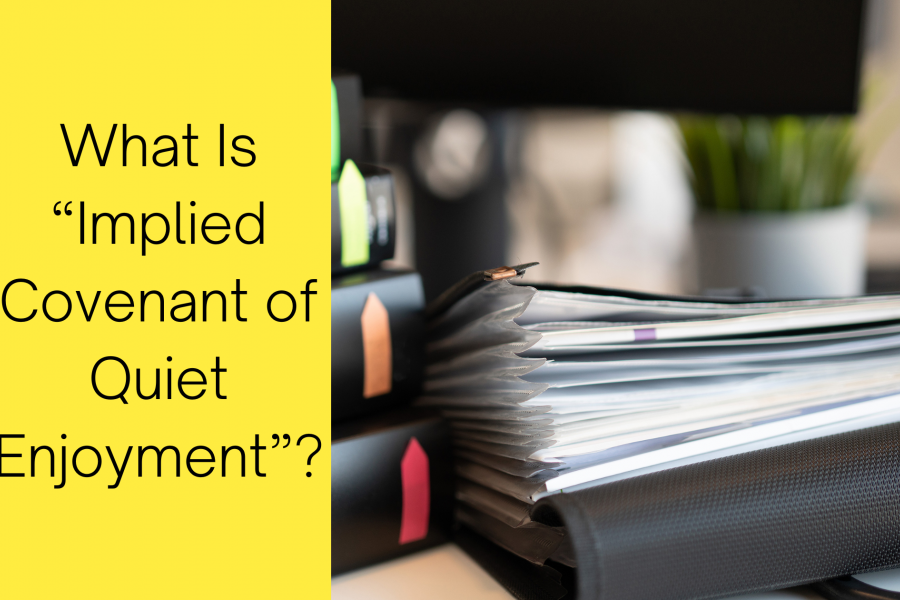
- Quiet enjoyment: Tenants have the right to live peacefully in their rental without excessive disruptions, even if it's not directly stated in the lease.
- Common violations: Entering without notice, neglecting repairs, or ignoring noise complaints can breach this legal right.
- Communication: Clear, respectful communication helps prevent issues and builds trust with tenants.
- Legal awareness: Understanding local laws ensures you respect tenant rights and avoid unintentional violations.
Do you own a rental property in Durham but are struggling to retain tenants? You’ve come to the right place!
Many investors ignore that the secret to a smooth, stress-free rental experience is keeping tenants happy.
Believe it or not, this is not as complicated as it sounds. Tenants want simple things: a clean and well-maintained property, to feel heard, and freedom in their rented living space.
By regularly maintaining the property, listening to and addressing tenants’ concerns, and respecting their privacy, your tenants will be happier and, thus, more likely to renew their lease. This helps reduce turnover and supports more consistent cash flow.
Unfortunately, many landlords ignore the importance of respecting tenants’ privacy. In fact, few investors understand the “implied covenant of quiet enjoyment” and the role it plays in landlord-tenant relationships. If you’re in the same boat, worry not!
The experts at Mark Thomas Properties PM will tell you everything you should know about this implied covenant, including how it can help you retain tenants for longer. Keep reading to learn more!
Learn how we can help you maximize your home’s potential.
Understanding the Implied Covenant of Quiet Enjoyment
Everyone appreciates having a quiet and safe space to relax at home. The implied covenant of quiet enjoyment protects tenants’ right to peacefully live in their rental unit without being disturbed. In basic terms, this means:

- The landlord can't just barge in without ample notice.
- There shouldn’t be constant noise disruptions in the environment.
- Other tenants shouldn’t make it impossible to live there peacefully.
- The property must be in livable condition.
In other words, the implied covenant of quiet enjoyment is basically the renter’s right to enjoy their home without constant problems or disruptions.
Even if it’s not explicitly written in the lease, it’s still automatically part of the lease agreement. And you, as the landlord, are responsible for respecting and protecting tenants’ right to live in a peaceful environment.
Violations of the Implied Covenant of Quiet Enjoyment
Understanding the implied covenant of quiet enjoyment is easier if you know what constitutes a violation.
Even the most well-intentioned landlord can unintentionally breach this covenant by doing things such as entering the property without notice, neglecting major repairs, or not addressing noise complaints promptly. To avoid problems, here are some actions you should abstain from entirely:
Entering the Property Without Notice
Tenants see your rental unit as their home. Entering without notice for inspections, repairs, or showings can be a serious violation of their privacy. Unless it's a true emergency, always give proper notice before visiting the property.

Neglecting Repairs
Landlords are legally responsible for keeping rental units safe and habitable. Failing to complete repairs on time can lead to bigger, more expensive problems, negatively impact your tenants’ daily lives, and miss opportunities to boost curb appeal.
Ignoring Noise Complaints
Loud parties, ongoing construction, or frequent disturbances make it hard for tenants to enjoy their space. Take noise complaints seriously and address them quickly to maintain a peaceful living environment.
Learn how we can help you maximize your home’s potential.
Lack of Basic Services
Providing essential services such as running water, heating, and electricity is part of your legal obligation and a key aspect of property maintenance. Interruptions or delays in restoring these services can make the unit unlivable and frustrate your tenants.
Harassment or Retaliation
Landlords should never harass tenants or retaliate against them for raising concerns. These actions not only violate tenant rights but also break the covenant of quiet enjoyment.
Ignoring Security Concerns
A safe home is a basic expectation. Failing to fix broken locks, lighting issues, or other security problems can make tenants feel unsafe and may lead to legal consequences or early move-outs.
Tips for Complying with the Implied Covenant of Quiet Enjoyment
Respecting the implied covenant of quiet enjoyment is key to fostering a positive landlord-tenant relationship.
If tenants feel comfortable and at peace in the rental unit, they’re more likely to renew their lease and stay for the long haul. Here are some tips to help you comply with this covenant and keep renters happy:

Provide Notice Before Entering the Unit
Always give written notice in advance before entering a tenant’s home, unless it’s a true emergency. This respects the tenant’s space and helps maintain trust.
Limit Non-Emergency Visits
Even with notice, too many visits can feel invasive. Keep non-urgent visits to a minimum to avoid making tenants feel uncomfortable.
Respect Tenant Privacy
Never enter without permission unless there’s an emergency. Always knock and wait before entering, and never go through a tenant’s mail or personal belongings.
Stay on Top of Maintenance
Establish a regular maintenance routine and handle issues like leaks, broken fixtures, or pests quickly. Prompt repairs show you care about the property and the tenant’s well-being.
Keep Shared Areas Safe and Clean
Maintain hallways, laundry rooms, and outdoor spaces so they remain clean, secure, and peaceful for everyone living there.
Resolve Conflicts Promptly
If a tenant reports problems with neighbors or other tenants, don’t ignore it. Step in to prevent the issue from escalating and potentially violating the lease.
Avoid Excessive Construction or Noise
Plan noisy work like construction or repairs during reasonable hours. Let tenants know in advance to avoid unnecessary disruptions.
Communicate Respectfully
Clear, respectful communication builds positive relationships and reduces misunderstandings or disputes.
Follow Local Laws and Lease Terms
Stay informed about landlord-tenant laws in your area. Honoring legal guidelines and lease agreements helps protect both you and your tenants.
Bottom Line
The implied covenant of quiet enjoyment is a legal precedent that gives tenants the right to live in their rental home peacefully, without unnecessary interference or disruption. Understanding and respecting this covenant is crucial for landlords.
It helps avoid legal trouble, builds trust with tenants, and ensures a positive rental experience for everyone. By honoring this right, landlords not only follow the law but also create a more respectful and cooperative landlord-tenant relationship, which leads to happier tenants and fewer disputes.
If you want to learn more about the implied covenant of quiet enjoyment in North Carolina, contact Mark Thomas Properties PM!
